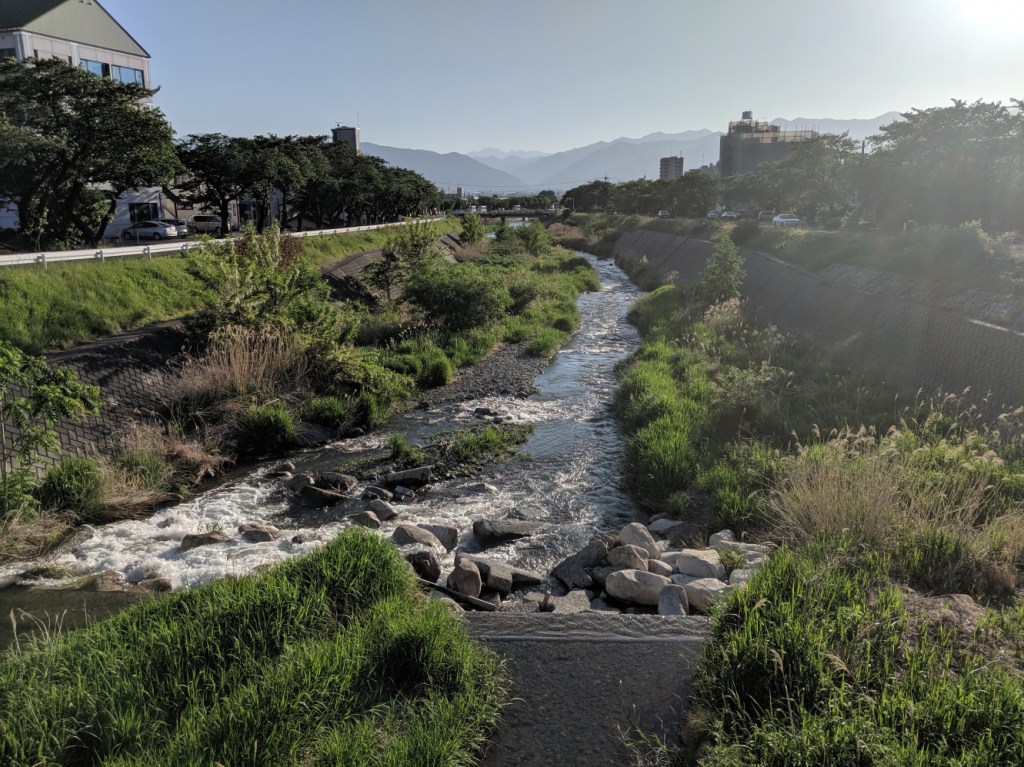The last cup of coffee I had in Matsumoto was the hardest to swallow.
In the 11 months that I spent in Japan, it’s hard to say just how many cups of coffee I consumed. Too many, without a doubt, and all the more so when you consider the fact that I’d also consumed it in cans; cold ones from vending machines as the September heat wore me and my fellow exchange students down to exhaustion, and after the change of season, when the weather crept in sharp enough to bite the bones, I had warm ones from the heated shelves of convenience stores. For a while, I stopped at the Starbucks inside of Tsutaya, a purveyor of books, comics, games, and other media, on a regular basis. They’d started to get tired of the students, asking us to please go upstairs if we were going to study for hours at a time, leaving the downstairs open for older patrons and those browsing the books.
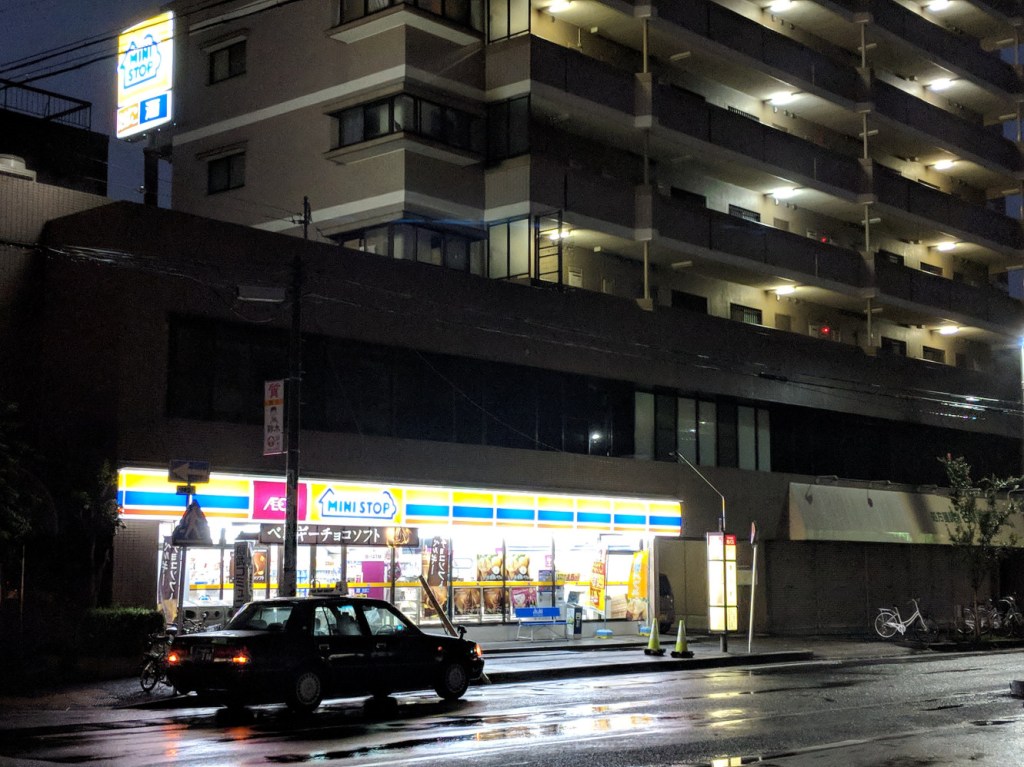
I’d also visited several local shops, including a small downtown cafe, the name of which I’ve forgotten, where I talked to the aging proprietor about tourists, foreigners, and the fact that she thought I had a friendlier face than most of them. She was impressed with my Japanese and told me so, switching rapidly from broken English as soon as she realized I could converse in her native tongue, and she made me some excellent hand-ground, slow-drip coffee as we chatted, in addition to giving me a snack of tiny dried fish. Her friend read a magazine at the bar while a pair of younger girls in the corner giggled to each other over cigarettes, which my lungs would later regret. I’d gone to another place with fancier, shinier coffee equipment and a dazzlingly cozy interior, just a stone’s throw from one of the more impressive and well-used shrines in the central part of town, nestled under a copse of tall trees. I’d spoken to no one there other than the man who served me an expensive but exquisite saucer of coffee, although I thoroughly enjoyed the trip. But that shop was well over a half hour’s walk for me, and far closer to my apartment was Cafe F, a tiny place where retired locals came to hang out and chat with each other and the owner. He loved movies, and had a TV screen dedicated to a slideshow of stills from his favorites, which were mostly older, and mostly from Hollywood. A framed picture of Audrey Hepburn decorated one of the walls, and a TV behind the bar played news broadcasts from various stations. Once, during a report detailing the last stages of the Camp Fire that ravaged a massive chunk of Butte County in northern California, I tried to work up the courage to tell him that’s where I was a student back in the States, but I never did find the nerve. Something about talking to the older crowd, like those that hung out at Cafe F, or the young adults, like most of the students I was going to school with, was just too intimidating for me. I did better with my teachers, who were mostly in their 40s and early 50s.
But the place I loved most was Tully’s, and it was there that I would have my last cup of coffee in Matsumoto. It was my favorite place to study, with a seat directly in front of the air conditioning when I’d inevitably get overheated in the 25-minute walk from my apartment, and they always played classic jazz standards. Not only did I appreciate the general environment of the place, my fiancee Ashley and I had spent most of our mornings in Kyoto at a downtown Tully’s, which had the nearest thing to a decent western-style breakfast we could find in the area, with above-average coffee to boot.
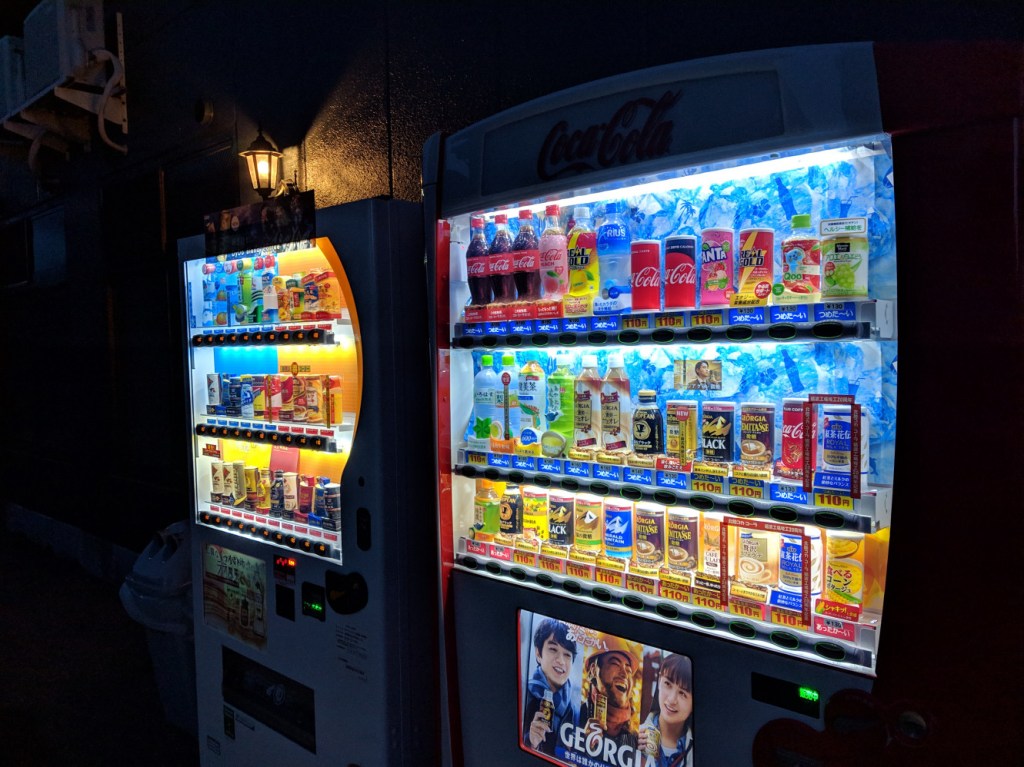
Tully’s itself is a formerly American chain, originally a competitor to Starbucks in Seattle, which would close the very last of its American locations in 2018. Stores had been opened through franchising in Japan, starting at the Ginza in Tokyo in 1997, and its now 600-ish stores have been owned by beverage giant Ito En since 2006. After selling off some of its assets, Tully’s filed for bankruptcy, and the remaining American stores were purchased by Global Baristas, an investment group headed up by Patrick Dempsey and partner Michael Avenatti, of all people, though Dempsey would later back out of the partnership, and Global Baristas would agree after a dispute never to operate under the name again. Keurig still sells coffee under the brand, but it has otherwise vanished from America. Despite such troubles, Ito En’s now-Japanese Tully’s never suffered the same fate, even in the face of the Starbucks colossus.
It was inside of this favorite Tully’s that I first searched out the information about the company’s history, wondering how this clearly non-native chain had reached Japanese shores and flourished where it had vanished in its home country. And it was inside of my favorite Tully’s that I contemplated telling the employees who had served me since my arrival that I was returning to the US soon, hoping to thank them for their constant good cheer and hospitality. I contemplated buying them a card, or giving them one of the small gifts I had brought from home. And it was inside of my favorite Tully’s that I chickened out, the taste of that final coffee lingering on my tongue with unusual bitterness as I walked out of the store, their exhortations for me to take care trailing behind me like smoke.
While I loved every minute that I spent in Japan because I came to love it with the special love one reserves for places outside of their own, places that they have chosen for the love they inspire, the thing that lingers most for me when I think back on my time abroad is the lessons of regret. They stay with me, like those final, long-rehearsed words from the good people at the Tully’s just a block away from Matsumoto Station.
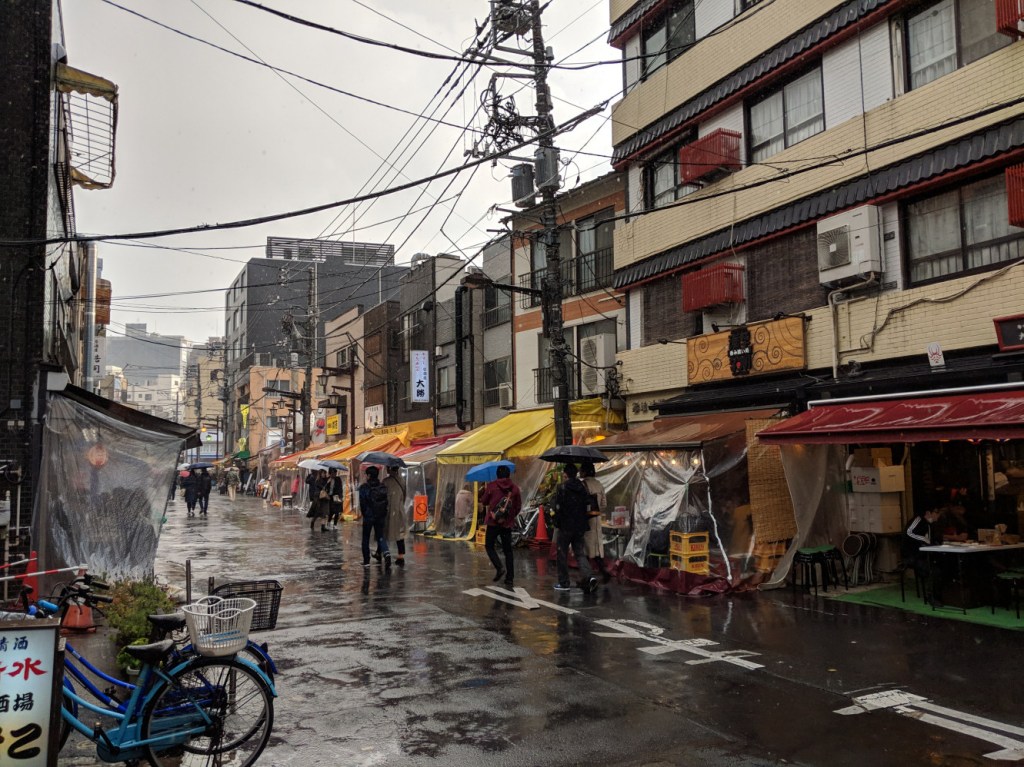
I was prepared. I had done my research, listened to advice from people who had lived abroad as students before, some of them in Japan, some even at my university. I read up on the mistakes that people make when going abroad or trying to adapt to a new environment, the mistakes people make when learning and using a new language, and the difficulties they run into that take them by surprise. I had prepared in every way one could truly prepare for a year in a foreign country they’ve never visited, and the transition itself had been easy. There was no culture shock, no difficult period of adjustment. I fit right in, because I already knew a lot about Japanese culture, and because their polite, respectful, and generally subdued public demeanor fit me in a way American society never has. I had been confident about my ability to integrate going in, and if anything, the ease with which I found myself living in Japanese society was even lighter and more natural than I had thought it could be.
And yet.
I can confidently say that some of the regret wasn’t my fault. My university, for its many good points, ran a difficult program that required too much preparation, too much homework, and occasionally too much time in the classroom. The first semester had its share of challenges, certainly, but these were amplified in the second semester, when unexpected changes to the program had come down from above, forcing our instructors to adapt or die. Unfortunately, most of these changes were made at the expense of the exchange students. I harbor no ill will against the wonderful people who took care of us there, who for the most part exceeded my expectations in being delightful people, and who were open to talking to us about the difficulties we experienced. I am indebted to my instructors, as they not only taught me a lot and were always willing to engage, but they kept me sane during the most stressful parts of my time in Japan, even when their coursework was partially responsible for it.
That said, the best of my experiences in Japan were far and away the times I was out in the world, finding a way to connect to the earnest, beautiful places and people that awaited me at every turn. That had occasionally been in the classroom or on campus, though was more often out in the wild, and I came to feel stifled by the interior of those classrooms.
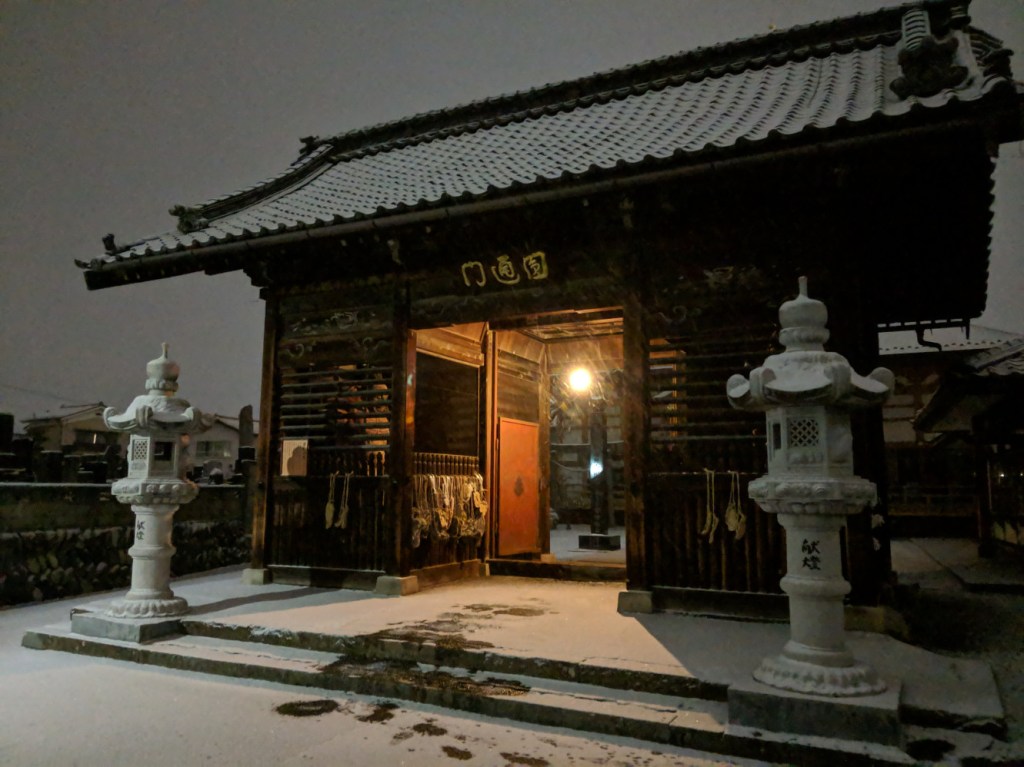
But as much as I would like to lay the blame somewhere other than at my own doorstep, I have to admit that it is not entirely the fault of the program or the changes to it that have left me with that lingering sense of regret. I have to admit that it is not merely the age gap between myself and the other students that kept me from making friends more readily, or from joining a club. Those things definitely didn’t help, and I am not uncomfortable in giving them their due share of the burden; but the truth is that I only went to that small downtown coffee shop with the friendly woman once, I never did work up the courage to have a true conversation with the kind old man at Cafe F, and I didn’t say a true goodbye either to the lovely young women who had served me coffee at Tully’s, or to the friendly, balding manager at the 7-11 where I bought so many cans of coffee, or to his employees, all of whom I had developed a great affection for during our many short interactions over the course of that year, very few of which resulted in me making any real effort at conversation.
Perhaps it was burnout–and no, it definitely was. I was tired, emotionally drained, and mentally exhausted. I would be doing myself a disservice not to give myself at least that much kindness. I wasn’t a student at Kansai Gaidai or Chukyo, taking courses in English for credit at my home university. I was a direct exchange student at Shinshu Daigaku, taking a full spread of Japanese-language classes, with only one throwaway English class during my second semester thanks to a scheduling issue with the other available options. My professors at home had great confidence in me, and wanted me to have the best experience possible, encouraging me to go where they thought my language skills would see the most benefit. For their confidence and support I am most grateful, and certainly I did see big gains in my Japanese, even if not to the degree I might have hoped. There were too many American students in our classes, and too many Asians from other countries equally as interested in practicing their own English or in expediting communication by using a more universal language, keeping us from engaging in Japanese as often as we should have. Some of those students also hit even harder burnout than I did, and gave up, weighing down the momentum of the group.
In the end, however, these amount to excuses. I knew better. I had written about the pitfalls of falling into the wrong friend groups before I’d even begun my journey, and about getting complacent with language immersion. I had spent a great deal of my long spring break after my first semester in Japan traveling with my fiancee and a good friend of mine from Texas, and my Japanese soared as I interpreted for them and we met new short-term friends at bars and hostels; so where was that energy and effort when I returned to Matsumoto? Some of it was indeed sucked up by studies, emotional struggles, and the general grind of daily life, sure.
But I was still drinking coffee.
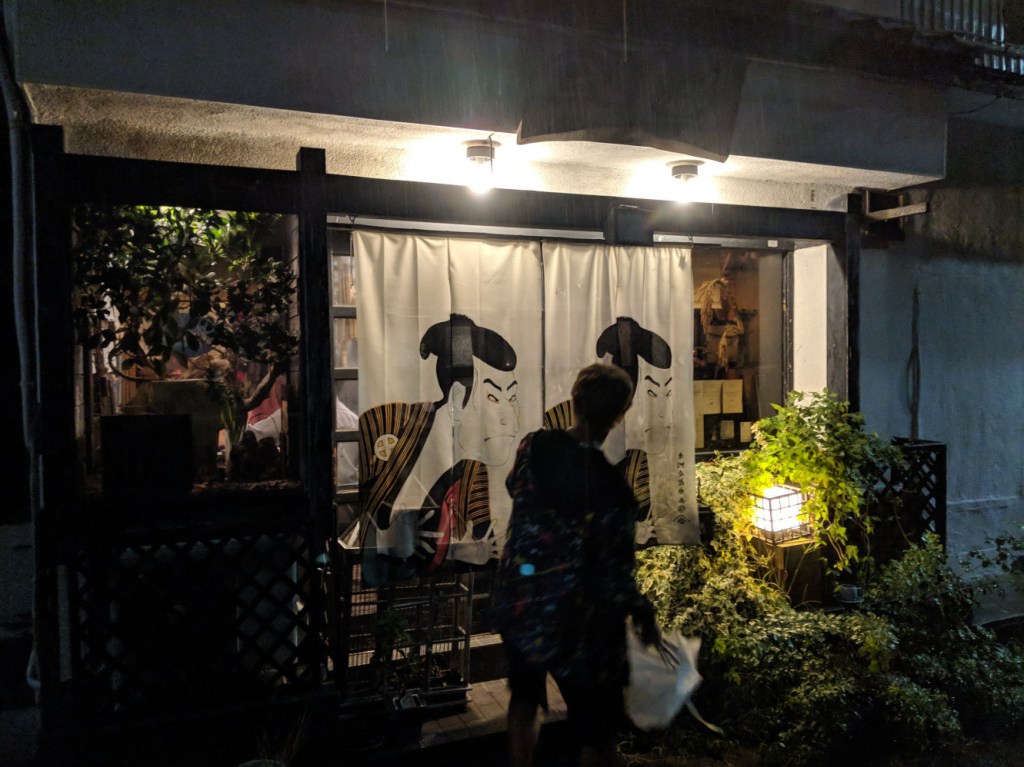
It’s the coffee I look back on fondly, and the coffee that I regret. Every day I stopped at a convenience store to buy coffee and snacks, or even groceries, from people whose faces I saw all the time. Every day I went to a coffee shop and curled up in it as a warm place to hide from myself, to bury myself in a public part of that new world that I loved; but I didn’t use it as an opportunity to interact, as the treasure trove of possibility that it was. I studied in those shops, read comics there, and made flashcards, even occasionally working up the courage for the odd remark or two to someone, but mostly I used those things as avoidance tactics. Sometimes it was for good reason, but mostly it wasn’t. Mostly it was letting my discomfort get the better of me.
I’ve been back in the United States now for a little less than three months. Once again I am in another coffee shop, my very favorite one, writing this article. I have a carafe next to me, which I bought at the Tully’s where I spent so much time in Matsumoto, filled with steaming hot coffee. This is the coffee shop where my fiancee and I spent a great deal of our early time together before I left for Japan–perhaps even where we fell in love–and it’s where I asked her to marry me after I returned. The day outside is cold, rainy, and beautiful, the kind of day we’ve not been graced with in northern California since I came home, increasingly rare thanks to climate change, and all the more welcome after the fire that consumed the town of Paradise, where friends of mine lost houses and memories and even loved ones. Fire season, at least for this year, is perhaps finally at an end.
Yet even here, in this coffee shop where I much more often speak to the proprietor and patrons, who speak my native tongue, I am reminded of opportunity and how it passes us by. Great Northern Coffee, which is built into the surviving hull of an old train car, is closing at the end of the year, the art collective that runs it having apparently found it too much of a financial and logistical burden. This place, originally introduced to me by a good friend I studied Japanese with for a semester, where I have made so many memories, met so many people, and spent so much time, will be gone by the start of my final semester at my home university. The people I might have gotten to know better will go with it, more opportunities lost, and I can’t help but think of those I’ve already missed: despite many friendly conversations with one of the baristas, she stopped working here before we ever really became friends, and there was a Japanese man and his American wife who used to come in, who I never said hello to, despite hearing him speak in Japanese and having my Japanese homework on the table in front of me half the time.
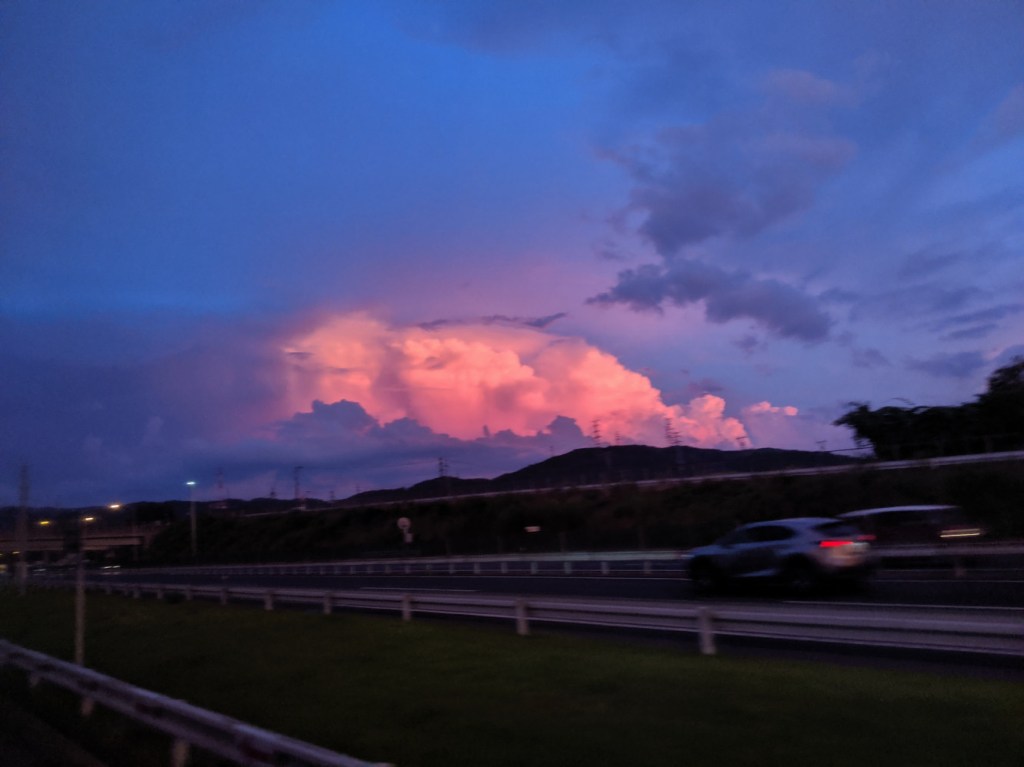
Who knows when I may return to Japan. I no longer have the money to make the trip, much less the time. Graduation is coming up fast, and with it, the increased urgency of finding more permanent employment. A success on that front will undoubtedly mean a substantially increased income, but that money is now spoken for; car repairs since my return drained my already dwindling funds, and saving for a new vehicle, not to mention a small wedding ceremony at the end of next year, will quickly take the place of any other savings goals for the foreseeable future.
So it is in that spirit that I urge all of you never to wait, or make excuses, or assume that tomorrow will provide another chance. The people may leave. The shop may close. The price of a plane ticket to that green, mountainous land where your heart still patiently waits–lost in a grassy thicket below a hillside, or at the bottom of a turquoise lake swollen with rain, or within the recesses of a snow-covered temple perched atop of a mountain path overlooking the sea–may blow calmly, quietly beyond your grasp.
Wherever you find yourself, don’t wait. Don’t talk yourself out of it. Don’t let the friendship you see in the twinkling eyes of a stranger walk away unacknowledged. For it is those moments in Japan where I didn’t wait that make the regret worthwhile, that make it a learning experience instead of a tragedy. It’s the time when I went to the bakery across from my university and spoke to the old woman there in Japanese about what she had on offer, and told her that I wanted to buy something nice for the people in the exchange office on campus. It’s when I gave those cakes and sweets to the woman I had grown most fond of at that exchange office, and seeing the happiness and warmth in her eyes as she took the big pink box back to the rest of her smiling colleagues. It’s my second night in Kamakura, when I drank too much with a group of Japanese, Chinese, German, and Kiwi strangers at an izakaya, then bought more drinks and snacks at a 24-hour grocery nearby, sharing cigarettes and practicing Japanese on the stoop of the old Japanese-style building that was our hostel; and it’s the night in Karuizawa I spent in conversation with traveling Japanese who had come to see the place Terrace House made famous, sitting around the table in our hostel, drinking as the rain hammered on the thin roof and walls of the country house around us. It’s my dear friend Hayato, who I met through the school’s mentor program, who taught me Japanese as we read folktales together; and Yuu, who brought me strawberries as a gift when we met for a curry dinner, leaving our separate ways for home in the first real snow of the season; and Yuuki, who I met in an American classroom when she could barely speak English and I could barely speak Japanese, who I later talked to over highballs and ramen, and we realized we’d both improved so much there was nothing to do but laugh.
Probably every society on earth has a phrase or two for it, though I only know a few, but I cannot escape their necessity. In America, we use the Latin: carpe diem, “seize the day”; or “YOLO!” in the more modern parlance.
In Japan, however, I think the sentiment is even better expressed. There they say 「今を生きる」 (ima wo ikiru), or “live the moment”; and in the even more beautiful simplicity of idiom, something can be 「一期一会」 (ichi go ichi e): a meeting, opportunity, or even confluence that occurs only once in a lifetime.
So don’t sweat what’s past, because there is always more ahead. And if I might be so bold as to make my own idiom (if only for my own future reference): if the coffee is still hot, there’s still time to share it.
